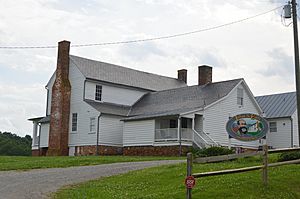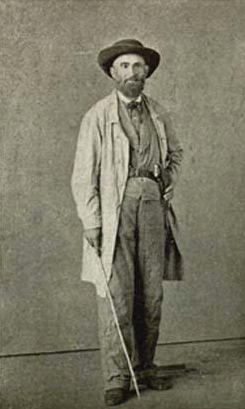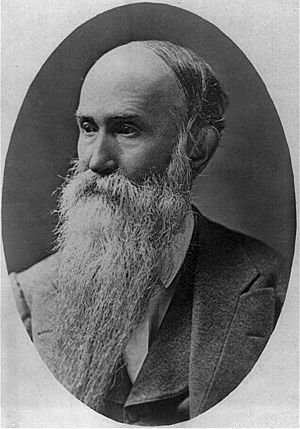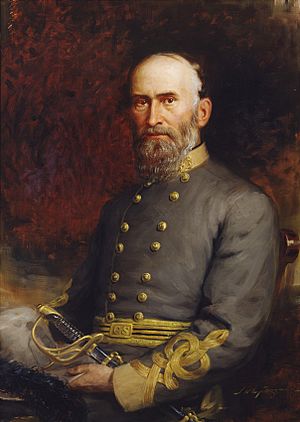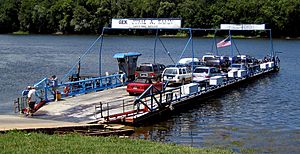Jubal Early facts for kids
Quick facts for kids
Jubal Anderson Early
|
|
|---|---|
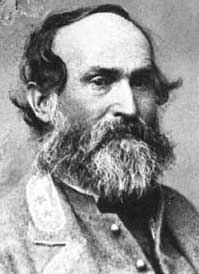 |
|
| Member of the Virginia House of Delegates from Franklin County | |
| In office 1841–1842 |
|
| Preceded by | Wyley P. Woods |
| Succeeded by | Norborne Taliaferro |
| Personal details | |
| Born | November 3, 1816 Franklin County, Virginia, U.S. |
| Died | March 2, 1894 (aged 77) Lynchburg, Virginia, U.S. |
| Resting place | Spring Hill cemetery, Lynchburg |
| Political party | Whig |
| Alma mater | United States Military Academy |
| Profession | Military officer, politician, Lawyer |
| Nicknames | "Old Jube" "Old Jubilee" "Bad Old Man" |
| Military service | |
| Allegiance | United States of America (1837–1838, 1847–1848) |
| Branch/service | |
| Years of service | 1837–1838 1847–1848 1861–1865 |
| Rank | |
| Commands | Second Corps, Army of Northern Virginia Army of the Valley |
| Battles/wars | Seminole Wars Mexican-American War American Civil War |
Jubal Anderson Early (born November 3, 1816 – died March 2, 1894) was a lawyer and politician from Virginia. He became a general for the Confederate side during the American Civil War.
Contents
Early Life and Education
Jubal Early was born on November 3, 1816, in Franklin County, Virginia. He was the third of ten children. His parents were Ruth Hairston and Joab Early. His family was well-known and had many connections in the area.
Jubal's father, Joab Early, was a part-time member of the Virginia House of Delegates from 1824 to 1826. He also served as the county sheriff and led the local militia. At the same time, he managed a large tobacco farm of over 4,000 acres. He used enslaved people to work on his farm. Jubal's older brother, Samuel Henry Early, became a successful salt maker. He also used enslaved labor and later became a Confederate officer.
Jubal Early went to private schools in Franklin County. He also attended more advanced schools in Lynchburg and Danville. In 1833, his father helped him get into the United States Military Academy in New York. Jubal was good at science and math. He was the first boy from Franklin County to attend West Point.
Early Career in Military, Law, and Politics
After graduating from West Point, Jubal Early became a second lieutenant in the U.S. Army. He was sent to Florida to fight against the Seminole people. However, he did not see much action. In 1838, he decided to leave the Army.
Early then studied law with a local attorney named Norborne M. Taliaferro. He became a lawyer in Virginia in 1840. The next year, people in Franklin County elected him to the Virginia House of Delegates. This was a part-time job. He served one term from 1841 to 1842. Later, he became the prosecutor for Franklin and Floyd Counties. He held this job until 1852.
During the Mexican–American War, Early volunteered to serve again. He became a Major in the 1st Virginia Volunteers. He served from 1847 to 1848. Major Early was in charge of supplies and inspections for his unit.
Role in the American Civil War
When the American Civil War began, Jubal Early joined the Confederate army. He became a general and led Confederate troops in many major battles. These battles took place in the eastern part of the country. Some of these battles include the Seven Days Battles, the Second Battle of Bull Run, the Battle of Antietam, and the Battle of Gettysburg. He also fought in many battles in the Shenandoah Valley in 1864.
General Robert E. Lee thought Early was a strong fighter. He also liked that Early could lead groups of soldiers on his own. Most of Early's soldiers liked him and called him "Old Jube" or "Old Jubilee." The nickname "old" came from his stooped posture, which was caused by an illness he got in Mexico.
Life After the War
When the main Confederate army surrendered in April 1865, Early rode his horse to Texas. He hoped to find other Confederate forces that were still fighting. From Texas, he went to Mexico, then to Cuba, and finally to Canada. Even though he had once supported the Union, Early said he could not live under the same government as the "Yankees."
While in Toronto, Canada, Early wrote a book called A Memoir of the Last Year of the War for Independence, in the Confederate States of America (1866). This book focused on his battles in the Shenandoah Valley. It was the first book about the war written by a major general. For the rest of his life, Early defended his actions during the war. He became a strong supporter of what was called the Lost Cause movement. This movement tried to explain and justify the Confederate side of the war.
In 1869, President Andrew Johnson pardoned Early and many other Confederate leaders. But Early was proud to remain an "unreconstructed rebel." He only wore suits made of "Confederate gray" cloth. He returned to Lynchburg, Virginia, and started practicing law again.
In 1873, Early became the president of the Southern Historical Society. He wrote many articles for their papers. He also became the first president of the Lee Monument Association. This group worked to honor General Robert E. Lee.
Death and Legacy
Jubal Early fell down some stairs at the Lynchburg post office on February 15, 1894. Doctors found no broken bones, but he had back pain and seemed confused. He did not get better and died at home on March 2, 1894. The exact cause of his death was not written on his death certificate.
On the day of his funeral, Virginia's flag flew at half-mast over the Capitol building. Cannons fired 36 times. A procession of military cadets, 300 Confederate veterans, and local soldiers followed his casket. Early was buried at Spring Hill Cemetery in Lynchburg.
The Library of Congress and the Virginia Historical Society have some of his personal papers. The idea of the Lost Cause, which Early strongly supported, was continued by groups like the United Confederate Veterans and the United Daughters of the Confederacy. His niece, Ruth Hairston Early, also helped keep his memory alive.
Jubal Early's last book, Autobiographical Sketch and Narrative of the War between the States, was published after he died in 1912. A recent writer about Early said that he worked hard to shape how people remembered the war.
Honors and Memorials
- The only ferry still working on the Potomac River, at White's Ferry, is named General Jubal A. Early.
- A main road in Winchester, Virginia is called "Jubal Early Drive."
- Virginia Route 116, from Roanoke City to Franklin County, is named the "Jubal Early Highway." It passes by his birthplace.
- His childhood home, the Jubal A. Early House, was added to the National Register of Historic Places in 1997.
- Fort Early and Jubal Early Monument can be found in Lynchburg, Virginia.
Streets Named After Him
- Jubal Early Drive, Forest, Virginia
- Jubal Early Court, Potomac, Maryland
- Jubal Early Highway, Boones Mill, Virginia
- East Jubal Early Drive, Winchester, Virginia
- West Jubal Early Drive, Winchester, Virginia
- Jubal Early Lane, Conroe, Texas
- Jubal Early Drive, Fredericksburg, Virginia
- Jubal Early Drive, Petersburg, West Virginia
- Early Street, Lynchburg, Virginia
Images for kids
-
A plaque honoring Early in Rocky Mount, Virginia.
See also
 In Spanish: Jubal Anderson Early para niños
In Spanish: Jubal Anderson Early para niños


